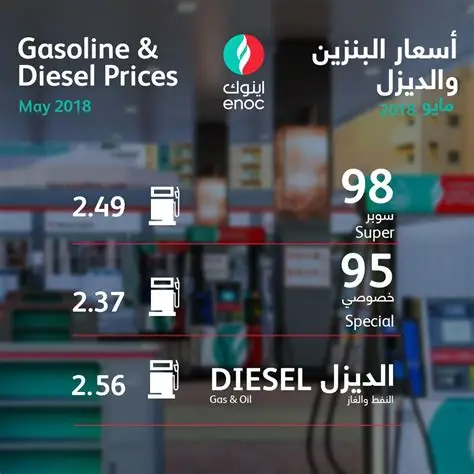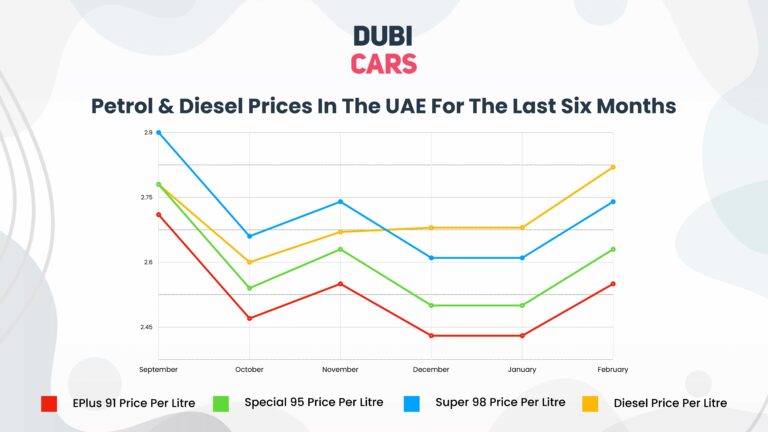- Key Factors Influencing Diesel Prices in the UAE
- Where to Find Today’s Diesel Prices in UAE
- Diesel Price Variations Across Emirates
- Helpful Tips to Save on Diesel Costs
- Frequently Asked Questions
- Final Thoughts
Understanding the diesel price in UAE today is essential for anyone planning their daily commute or managing logistics for their business. Whether you are curious about price fluctuations or looking for ways to reduce fuel expenses, getting the most accurate and timely details is crucial. This guide will walk you through the essential aspects of UAE diesel pricing and offer practical tips to navigate the costs effectively.
Key Factors Influencing Diesel Prices in the UAE
Diesel prices in the UAE, like in other global markets, are influenced by a combination of international and local factors. While the exact price may vary, the following elements usually play a central role:
Global Crude Oil Prices
The global oil market sets a baseline that directly impacts local diesel rates. Significant changes in crude oil demand or supply often reflect on the pump prices.
Government Policies and Subsidies
UAE authorities regulate and announce fuel prices monthly. This helps in stabilizing the fuel market and shielding consumers and businesses from sharp rises in global oil prices.
Logistical and Operational Costs
From refining to the eventual transport and distribution of diesel, every step in the supply chain holds costs that can be passed on to consumers.
Supply and Demand Trends
Seasonal shifts or changes in economic activity can temporarily influence diesel rates, especially during high-demand periods.
Since the UAE regulates the fuel pricing to ensure fairness, it's always a good idea to refer to official announcements for the most up-to-date information.
Where to Find Today’s Diesel Prices in UAE
Staying informed about daily diesel prices is much easier now, thanks to digital platforms and information tools. Here are the most reliable options for checking real-time fuel rates:
Petroleum Company WebsitesMajor providers like ADNOC Distribution regularly upload verified diesel prices for easy access. These websites are user-friendly and provide official price changes instantly.
Mobile ApplicationsApps such as ADNOC’s mobile platform or other third-party fuel monitoring tools allow for one-tap access to the latest fuel-related insights across the UAE.
Electronic Boards at Fuel StationsWhen on the road, check digital signboards displayed visibly near major petrol stations for current diesel prices before refueling.
Local News and Fuel Rate AnnouncementsUAE-based credible news outlets often feature daily or monthly updated fuel pricing, delivering accurate and concise details for both locals and expats.
Remember that slight discrepancies can occur; it is a good practice to verify the displayed price at the pump before making transactions.
Diesel Price Variations Across Emirates
While diesel prices are broadly standardized throughout the UAE, there can be small differences under certain circumstances:
Major Cities vs Remote AreasCities such as Dubai, Abu Dhabi, and Sharjah usually maintain standard rates, but prices in more remote areas might differ slightly due to transportation costs.
Station-Specific CampaignsSome stations may offer regional or loyalty discounts on limited periods. On the other hand, stations in high-traffic zones may include service charges contributing to price variation.
Helpful Tips to Save on Diesel Costs
Whether you drive a personal vehicle or manage a fleet, following these tips can significantly reduce your overall diesel expenses:
Enroll in Fuel Station Loyalty Programs
UAE stations often provide incentives such as cashback rewards for regular customers. Sticking to a preferred brand may add long-term benefits.
Drive Smartly
Accelerate gently, maintain steady speeds, and avoid unnecessary braking. Adopting better driving habits helps save fuel over time.
Keep Your Vehicle in Good Condition
Regularly check air filters, tire pressures, and oil levels. A well-maintained engine works smoothly and consumes less diesel.
Avoid Traffic Congestion
Use navigation apps and traffic updates to select routes that minimize idling and delay times, saving precious fuel.
Plan Bulk Purchases for Fleets
Businesses can consider contracting directly with fuel providers for competitive fleet pricing. Check with major fuel distributors to explore the available deals in bulk purchases.
Frequently Asked Questions
Q:How often do diesel prices change in the UAE?Prices are primarily updated on a monthly basis. However, special adjustments can occur during extreme market situations to stabilize the supply-demand gap.
Q:Is there a difference between diesel being sold at various petrol stations?While the grade of diesel remains consistent (typically one uniform type across all UAE petrol stations), pricing may vary due to operational costs and location specifics.
Q:Can tourists rely on the listed price during visits?Absolutely. The uniform UAE pricing standards ensure that rates stay transparent and uniform for all motorists.
Final Thoughts
Navigating fuel costs can seem challenging, but understanding the contributing factors and learning how to find reliable information empowers drivers. Whether for work or leisure, keeping track of diesel price in UAE today helps you stay prepared for your day-to-day journeys across the Emirates. Make the most of tools like apps and loyalty programs to fuel efficiently and lower expenses.
Read More:
Prado 2024:Your Complete Guide to Toyota's Adventure SUV












